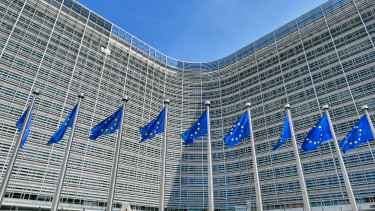EU funds
Why has the EU tackled big online platforms? - The answer is here
Online platforms have rapidly changed the way in which businesses can connect with their consumers. Nowadays companies can easily offer products and services that are only a few clicks away, while consumers reap the benefits of innovative solutions that make holiday accommodation and car sharing not only fast and cheap, but also easy to organise.
But is it still smooth sailing for everybody involved?
For many businesses, the answer is no; some of them find themselves becoming more and more dependent on a relatively small number of powerful online platforms, gatekeeping and controlling their access to millions of consumers on a larger geographical scale. In such imbalanced relationships, it is unsurprising that certain problems will arise, and it is only natural for companies to feel defenceless in these situations. This sort of climate discourages many of them from seizing the opportunities that online platforms have to offer, when it comes to selling both at home and abroad.
As a first step, the EU has now put in place the first ever platform-to-business trading practices regulation in the world to challenge this imbalance. This means that anyone buying or selling on these platforms can rely on clear guidelines and know where to turn to solve any potential disputes. These rules ensure more predictability for businesses and will encourage them to use online platforms as a way of reaching a wider consumer audience. They will allow businesses to better understand what exactly governs relationships on the online platforms that they use, whether it concerns their data policy, how their products are treated in comparison to own-label products, or their freedom to offer services throughout their own websites. The rules will also ensure that online platforms put in place the correct customer relationship management systems in order to handle their complaints, and on top of that, search engines should also be clear on how they decide the ranking in which their search results are displayed.
Why did the EU decide to be the first in the world to regulate the likes of Google, Apple, Facebook and Amazon? The online economy is moving fast, and policymakers should not lag behind. The unprecedented situations in which businesses might find themselves when dealing with online platforms has pushed the EU to act much sooner, rather than later; a more predictable online economy will reassure not only the businesses, but also online platforms and the consumers, fostering more trust on the Web.
Better-informed businesses will be able to make better decisions, and online platforms have a single EU-wide legal regime that will not stifle their ability to bring new ideas to the table. In addition, increased transparency and fair competition actually benefits European consumers, by bringing in a wider range of choices and of course, potentially better prices.
These new rules will ensure a level playing field between European and non-European online platforms. As long as an EU consumer can buy something using an online platform, EU-based or otherwise, the new rules will apply to both and will not disadvantage our European companies in the context of fierce competition from foreign rivals in countries such as China and the United States.
The Commission has also set up an Observatory on the Online Platform Economy, which is already hard at work, monitoring and analysing developments in order to gain a better understanding of the online economy, and to enable informed and flexible policymaking at EU level. The Observatory’s dedicated expert group is working on a first set of technical papers, which will be released in September and discussed further with its stakeholders.
And the story does not end here. These actions are just the first steps to ensure that both European consumers and businesses can reap all of the benefits from online platforms. Considering that platforms based in the EU represent about 2% of global online platform value, the EU needs more digital champions and we need to create the right environment with a bold industrial policy. We also need to keep a close eye on the situation to ensure that the business models of online platforms benefit all of us, and do not undermine our values, our societies and our security. These are the next challenges that we will have to address very soon.
By Mariya Gabriel, European Commissioner for the Digital Economy and Society
Cover photo: Dursun Aydemir/Anadolu Agency/Getty Images
But is it still smooth sailing for everybody involved?
For many businesses, the answer is no; some of them find themselves becoming more and more dependent on a relatively small number of powerful online platforms, gatekeeping and controlling their access to millions of consumers on a larger geographical scale. In such imbalanced relationships, it is unsurprising that certain problems will arise, and it is only natural for companies to feel defenceless in these situations. This sort of climate discourages many of them from seizing the opportunities that online platforms have to offer, when it comes to selling both at home and abroad.
As a first step, the EU has now put in place the first ever platform-to-business trading practices regulation in the world to challenge this imbalance. This means that anyone buying or selling on these platforms can rely on clear guidelines and know where to turn to solve any potential disputes. These rules ensure more predictability for businesses and will encourage them to use online platforms as a way of reaching a wider consumer audience. They will allow businesses to better understand what exactly governs relationships on the online platforms that they use, whether it concerns their data policy, how their products are treated in comparison to own-label products, or their freedom to offer services throughout their own websites. The rules will also ensure that online platforms put in place the correct customer relationship management systems in order to handle their complaints, and on top of that, search engines should also be clear on how they decide the ranking in which their search results are displayed.
Why did the EU decide to be the first in the world to regulate the likes of Google, Apple, Facebook and Amazon? The online economy is moving fast, and policymakers should not lag behind. The unprecedented situations in which businesses might find themselves when dealing with online platforms has pushed the EU to act much sooner, rather than later; a more predictable online economy will reassure not only the businesses, but also online platforms and the consumers, fostering more trust on the Web.
Better-informed businesses will be able to make better decisions, and online platforms have a single EU-wide legal regime that will not stifle their ability to bring new ideas to the table. In addition, increased transparency and fair competition actually benefits European consumers, by bringing in a wider range of choices and of course, potentially better prices.
These new rules will ensure a level playing field between European and non-European online platforms. As long as an EU consumer can buy something using an online platform, EU-based or otherwise, the new rules will apply to both and will not disadvantage our European companies in the context of fierce competition from foreign rivals in countries such as China and the United States.
The Commission has also set up an Observatory on the Online Platform Economy, which is already hard at work, monitoring and analysing developments in order to gain a better understanding of the online economy, and to enable informed and flexible policymaking at EU level. The Observatory’s dedicated expert group is working on a first set of technical papers, which will be released in September and discussed further with its stakeholders.
And the story does not end here. These actions are just the first steps to ensure that both European consumers and businesses can reap all of the benefits from online platforms. Considering that platforms based in the EU represent about 2% of global online platform value, the EU needs more digital champions and we need to create the right environment with a bold industrial policy. We also need to keep a close eye on the situation to ensure that the business models of online platforms benefit all of us, and do not undermine our values, our societies and our security. These are the next challenges that we will have to address very soon.
By Mariya Gabriel, European Commissioner for the Digital Economy and Society
Cover photo: Dursun Aydemir/Anadolu Agency/Getty Images

This article is part of the work programme titled "The impacts of EU cohesion policy in Hungary - Present and Future" which is carried out by Net Média Zrt., the publisher of Portfolio.hu, between 1st April 2019 and 31st March 2020 with European Union financing. The views in this article solely reflect the opinions of the author. The European Commission as the funding entity does not take any responsibility for the use of information presented in this article.













